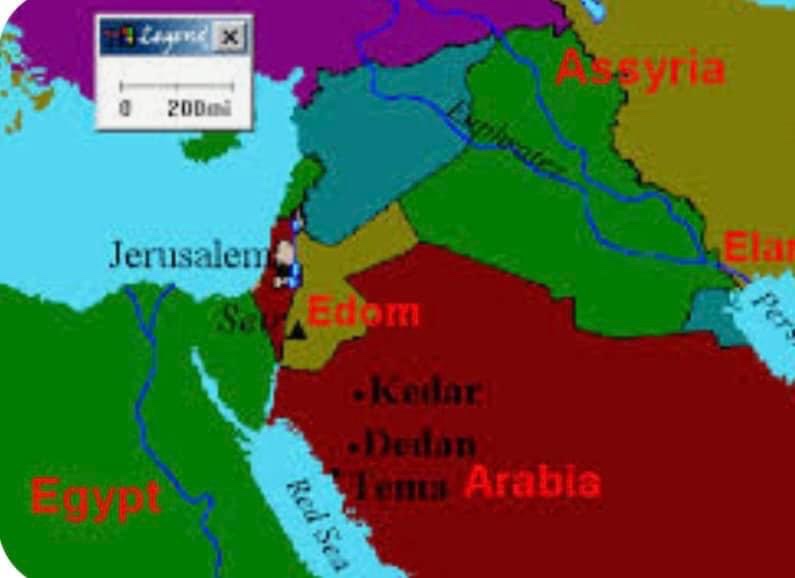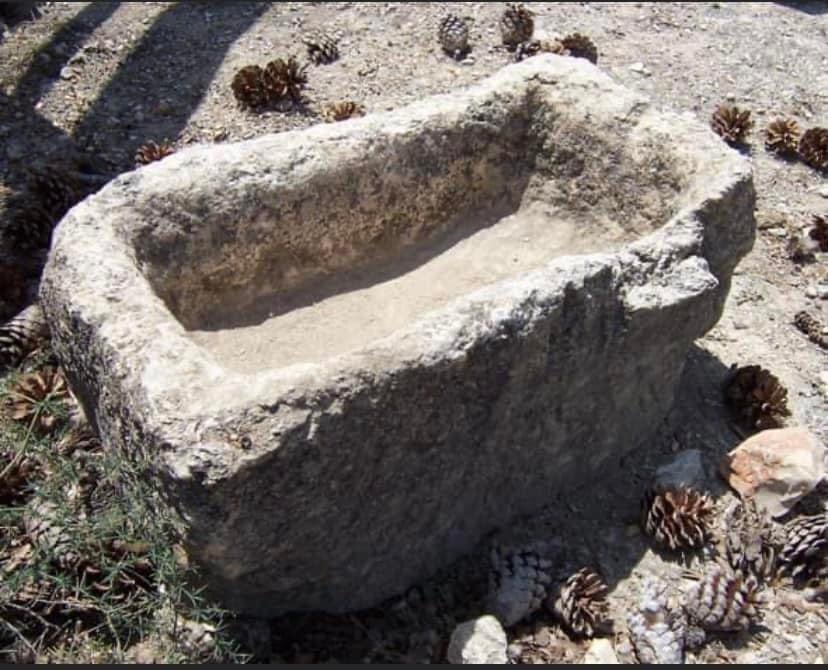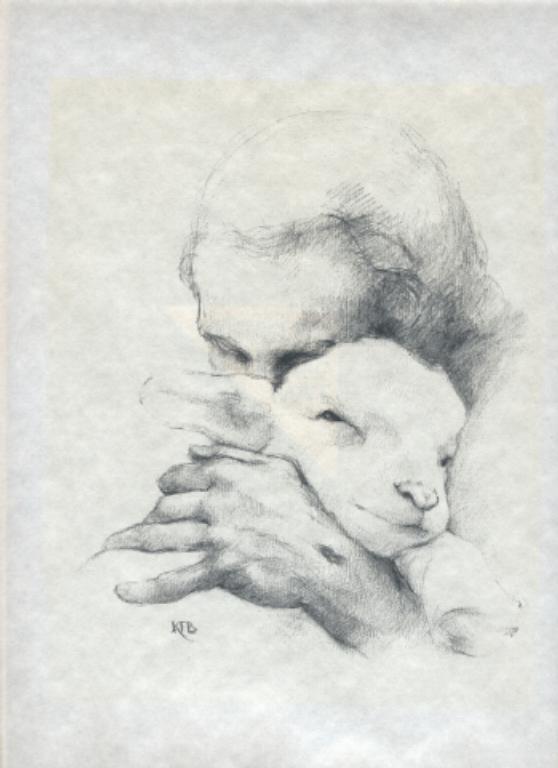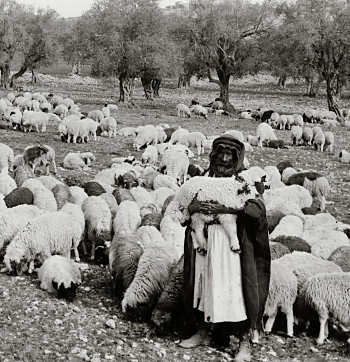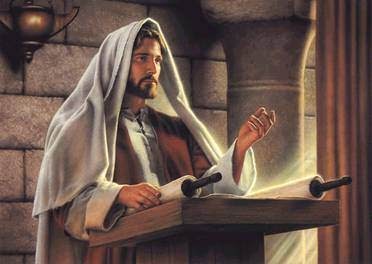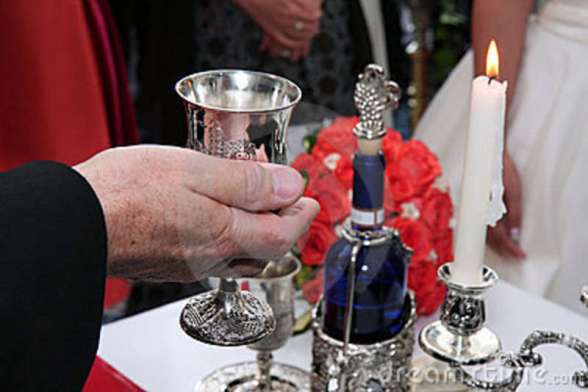A 2007 Tuesday night study on discipleship
Matthew 10:24, Matthew 11:28-30
Wrap your mind around the fact that Jesus was an Orthodox Jew living in an Orthodox Jewish region among Jewish people calling a chosen people back to The Way of the One and Only Jewish God, the LORD God Jehovah. He was not a “Christian” as we Westerners want to believe. Gentiles invented that term many years after Jesus’ death as a ridicule to those who dared to follow Him . Read Acts 11:26.
We know that Jesus was considered a Rabbi by His contemporaries according to John 1:38-40, John 3:2 and John 20:16. I say this so you will understand that Jesus was a Torah teaching, Torah observing, full-heir to all the promises and birthrights that every Jew is entitled to according to Holy Scripture. Because we know these things we now need to understand who and what a Rabbi is and how one becomes the disciple of a Rabbi.
Now, these Orthodox Jews believed that at a specific point in time God intervened in the lives of the Hebrew race and led them out of 400 years of captivity by the hand of a leader named Moses. They believed that God spoke directly to Moses and that He gave Moses a copy of what He said while they were together on Mount Sinai. We know that copy as the first 5 books of our Old Testament (Gen., Ex., Lev., Num., and Duet.). The Jews call it Torah or Law. That word can also mean ‘teaching’ or ‘the way, the truth, and the life’ of the Jews (does that phrase sound familiar to you?). Read John 14:6. They believed that the best way to live was like Torah taught. It was the central, if not corporate, passion of the people of Jesus’ day to teach, live, and obey The Way of Torah.
Here is a crucial point for you to understand: education was not considered a luxury or an option for the Jew. It was key to, and essential to, his survival. If you lost Torah, you lost EVERYTHING. That is how central to life it was for them. So around the age of 6, most Jewish boys went to school for the first time. It was probably held in their local synagogue and taught by their local Rabbi. This first level of education was called “Bet Sefer” and means “House of the Book”. The Rabbi would have his students taste honey and remind them that God’s Words are like honey on the lips. He wanted them to understand that nothing was more exquisite than God’s Torah (Law). Look at Psalm 119:103.
By age 10, these students would know all 5 books of the Law…all 5 books committed to memory by age 10! This should tell you how remarkable our children truly are when motivated properly rather than dumbed down by a ‘give me, I deserve it’ system. Remember the importance these folks placed on Torah — central to life; to lose IT means you lose EVERYTHING — especially your identity. Remember, too, that not everyone could own a copy of Torah. Usually an entire village owned a single copy, and it housed in the synagogue in a place called an ark. The ark was positioned on a wall that was closest to Jerusalem. That copy was only brought out once a week for public reading. Now you understand why children had to memorize it. Haven’t you ever wondered why when Jesus quoted a verse that everyone in the crowd knew the text of it? Now you know. From an early age, the Words of God were in the heads and on the lips of His little children.
If you had proven yourself to have a natural ability with theScriptures, you would continue your education to the 2nd level. “Bet Talmud”, or “House of Learning” began about age 11. At this level you would be required to have memorized all 39 books that make up the Tanakh — our Old Testament. You would also be required to study the art of asking questions and the oral traditions. For thousands of years, the most brilliant minds had discussed the Words of God, what they meant and how to live them out. Students would learn the text and everything that every well-known rabbi (teacher) ever said about that text, also.
A Rabbi would ask his students questions, but he rarely expected an answer as we are accustomed to today. He wasn’t interested in whether the student could play back information on cue. He wanted to know if the student understood the text well enough to form his own questions concerning it. If the student could do that then the rabbi knew the student completely understood the text. Have you noticed how rarely Jesus answered a question, but how often He responded with His own? By the way, how old was Jesus when His parents found Him in the Temple at Jerusalem? Twelve? Notice that He was sitting among the teachers of the Law (rabbis) listening and asking questions. And everyone around Him was amazed at His understanding and His answers. Luke 2:41-52.
Please note that the children are called students at this point and not disciples. They are learning about the Law and the Prophets in general (another name the Tanakh or Old Testament. They are not studying any one particular teaching over another — or as we have today, one doctrine over another. It should also be noted here that at age 10, if the child was not an excellent student about the first 5 books, he was sent home to learn the family business by being apprenticed to his father or to a business owner. The same was true about the second level. This was the case with most students by the time they were 14 or 15. They were sent home to work in the family business, or to even begin families of their own.
But if a student did excel, this was the time he would apply to a well-known rabbi in hopes of becoming one of his disciples. You should understand that a disciple is not a glorified way of saying that someone is a particular teacher’s student. Being a disciple is far more than that! The goal of the disciple is not just to know what his rabbi knows; it is to BE what his rabbi is. Period. This level of education was called “Bet Midrash” or “House of Study”.
Okay, I have to step back here and tell you something that I hope will truly blow your mind! Read Matt. 11:28-30. Back in Jesus’ time, before it, after it and until today, a rabbi’s job was to interpret God’s written word. Not everyone could be a rabbi; you had to be the best of the best. But also, not every rabbi taught exactly the same thing on any given subject. Just like we have different interpretations of Scripture today, so it is with the interpretations of the rabbis and what rules they hold on how to live out Torah. This is known as a rabbi’s ‘YOKE’. How lenient or strict he is, is called his ‘BURDEN’. If you applied to a certain rabbi you were telling him and the world that you believed his set of interpretations were the closest to what God intended through the Scriptures. It meant you were willing to take up his yoke and bear his burden. This ‘yoke’ wasn’t merely about interpreting the word, it was about living them out. Action was always the goal and it still is. Read Matt. 5:17. Now, if a rabbi believed a student had interpreted a certain text all wrong, he would say, “You have abolished Torah.” But if the rabbi believed the student had his interpretation correct he would say, “You have fulfilled Torah.” Essentially Jesus was telling those people that His interpretation was precisely on the mark of what God intended for them to live out.
If a student had excelled in his study of Torah by age 14 or 15, he would choose a rabbi whose yoke he was WILLING to bear, gather his courage, and go tell this rabbi, “I want to follow you.” If he succeeded in becoming a rabbi himself one day, he would be one of the most respected men in his region. But to be a rabbi, one must first be a rabbi’s disciple. So, this teacher pulled out all the stops! He drilled and questioned this young man about the Law and the Prophets, about tradition, sages, and oral law; about legislation, and interpretation, passages, phrases and even other rabbis’ teachings. His whole line of questioning was designed to tell him whether this young student could do what he did. Did the young student have what it took to spread the rabbi’s yoke? Could the student be exactly like the rabbi? The teacher didn’t have time to train someone who couldn’t do what he did. But if he believed the young man could do what he did, that rabbi would say to him, “Come, follow me.” And that newly formed disciple would leave father, mother, job apprenticeship, village, and friends. He would devote his entire life to learning how to do what his rabbi did–spread his yoke. He gave up his entire life to be exactly like his rabbi. “Cover yourself with the dust of your rabbi’s feet” was a quote that denotes the kind of devotion it took to be a disciple. Being a disciple was exhilarating, terrifying, and demanding because you never knew what your rabbi was going to do next. They were passionate, funny, quirky, and unpredictable. They told stories and laughed, went to a lot of parties. They never stopped asking questions or pushing their disciples, and never stopped keeping them guessing. Rabbis devoted themselves completely to their disciples to help them learn to do what they did. Every opportunity was used to prepare the disciple. After all, the rabbi wouldn’t always be with them.
So around about the age of 30, when a Rabbi generally begins his own public teaching and training of his own disciples, Jesus appeared at the Sea of Galilee. Read Matt. 4:18-22. Why were Andrew and Peter fishermen? Because they had not excelled in their studies enough to become a rabbi’s disciple. But Jesus saw them and said, “Come, follow me.” And at once they left their nets and followed him. Isn’t this strange behavior? NO! Can you image how joy-filled those 2 guys were! To have a rabbi (well-respected at that time, by the way) say, “Come, follow Me. You CAN be like Me. This Rabbi believes you can do what I do. I believe you can be like Me.” I tell you if you heard Jesus say this to you, and you fully understood all that it meant, you’d drop you nets and follow Him, too!
Then Jesus came upon James and John who were working with their dad in the family fishing business–they were apprentices. If they were still working with their father, how old do you suppose these boys to be? 14, 15, 16?
Listen guys–Jesus took a bunch of kids who weren’t considered good enough for any other rabbi, who probably didn’t make it past the second level of learning, and HE turned the world as they –and we — know it UPSIDE DOWN!
Read John 15:16. Do you remember the story of Jesus walking on the water? His disciples were all afraid He was a ghost–except one. Peter tells Jesus, “Lord, if it really is You, command me to come to You on the water.” And Jesus said, “Come!’ And Peter does walk on the water just like his Rabbi! So why does he begin to sink when he sees the wind and waves? Surely the wind was blowing before he stepped out of the boat. And the waves were still enormous once his feet were on the water. So why did Jesus have to say to him, “Oh you of little faith; why did you doubt?” Peter did not lose faith in his Rabbi–Jesus was walking on those waves just fine. Peter lost faith in himself. He stopped believing for a moment that he could do what his Rabbi was doing.
By the way, are you wondering why Peter was so anxious to go to his Rabbi “on the water” in the first place? It sounds a little strange until you realize that as a disciple, you want to do everything your rabbi does. You’ve committed your life to him. If your rabbi is able to walk on water and he’s teaching you to do what he does, then you should be able to water too!
So if the Rabbi called you to be a disciple, then He believed you could actually be just like Him. Jesus seemed to get frustrated with His disciples when they lost faith in themselves. At one point He finally said to them, “Remember you did not choose me, no, I have chosen you.” The entire rabbinical system was based on the rabbi having faith in his disciples. He would only choose a disciple who he thought could actually do what he was doing.
Jesus knows what His disciples are capable of because He knows He is the One who gives us strength. We are the ones who don’t realize and live up to our potential in Christ.
At His ascension into Heaven, Jesus told His disciples to go to the ends of the earth and make more disciples–spread His yoke. He sent His Spirit to guide and empower them, but He Himself left the future of “The Way” in their hands. He trusted that they could actually do it and He still trusts that we will continue to spread His yoke today. God has an incredibly high view of His people. He believes that we are capable of amazing things, and why not? We are, after all, made in His Image! And He sees us through the eyes of His precious Son.
So come on! Follow this Rabbi! His yoke is easy, His burden is light, and He believes that you can be just like Him!
Note: I found the information for this study in the book “God’s Appointed Customs” written by Rabbi Barney Kasdan, a Messianic Jew with many degrees in both Judaism and Christian Theology.



